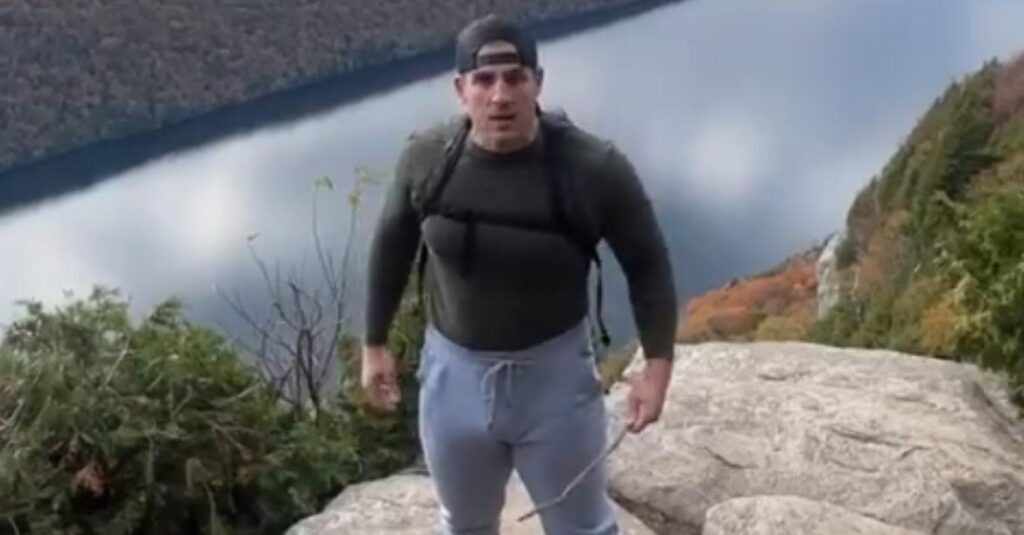Zachary Apotheker, a Border Patrol whistleblower, has gained attention for his appearance in James O’Keefe’s documentary “Line in the Sand.” This film delves into the complexities of the U.S. border situation, revealing the dark aspects of the migrant industrial complex, such as child trafficking and abuse, and the broader implications of U.S. immigration policies. Following the release of the documentary, Apotheker received a memo from U.S. Customs and Border Protection (CBP) demanding detailed explanations regarding his participation in the film. The memo outlined several questions about whether he engaged in any interviews or discussions while on duty, in uniform, or using CBP resources. This situation raises significant questions about whistleblower protections and the ongoing challenges faced by those exposing systemic issues within government agencies.
Apotheker’s involvement in “Line in the Sand” emerges from a sense of moral obligation; he felt compelled to speak out against the injustices he witnessed, particularly the plight of children who suffer in these circumstances. The film, produced by O’Keefe, utilizes hidden cameras to expose the grim realities at the U.S.-Mexico border, including details about human trafficking networks and the operations of authorities regarding detained minors. The documentary aims not only to inform the public about these urgent issues but also to spark conversations around the necessity for reforms within current border and immigration policies.
In his response to the inquiries from CBP, Apotheker emphasized that his motivation to participate in the film stemmed from his desire to tell the truth and uphold his constitutional duty. He dismissed claims of having received compensation for his appearance in the film, stating that the only reward he obtained was a “free, clean, and clear conscience.” His comments reflect a broader sentiment among whistleblowers who often risk their careers and safety to bring attention to critical societal issues, particularly when the integrity of vulnerable populations is at stake. His assertions underline the significant number of unaccounted missing children in the care of government agencies, further reinforcing his motivations to disclose such troubling realities.
The memo from CBP effectively puts Apotheker on the defensive, raising concerns about the potential consequences he may face for his transparency. The level of detail in the questions asked—covering aspects ranging from whether interviews occurred during work hours to any information shared with non-CBP employees—suggests a thorough investigation into his actions. Such scrutiny is not uncommon for whistleblowers, who may face institutional backlash for shedding light on uncomfortable truths. The inquiry can be seen as an attempt to discredit his claims or to intimidate him into silence, demonstrating the challenges whistleblowers notoriously encounter.
The pushback against Apotheker’s revelations also highlights the sensitive nature of immigration and border security topics in the United States. As public sentiment and political discourse become increasingly polarized, the narratives surrounding border control and migrant welfare often become weaponized in broader ideological battles. O’Keefe’s exploration through “Line in the Sand” attempts to circumvent this by presenting raw testimonials and factual evidence, aiming to foster a more informed public dialogue. Apotheker’s willingness to engage in such discourse adds a crucial perspective, positioning him not merely as a whistleblower but also as an advocate for systemic change.
Ultimately, Zachary Apotheker’s story encapsulates the difficult position that whistleblowers inhabit. On one hand, they serve as crucial agents of accountability, alerting the public and lawmakers to issues of abuse and mismanagement. On the other hand, they often face serious repercussions from the very institutions they aim to reform. Apotheker’s commitment to truth advocacy amidst potential personal and professional consequences highlights the broader challenges involved in addressing corruption and injustice within government agencies. As discussions surrounding immigration continue to evolve, his voice and the narratives shared in “Line in the Sand” contribute significantly to the ongoing conversation about ethics, duty, and responsibility in public service.

